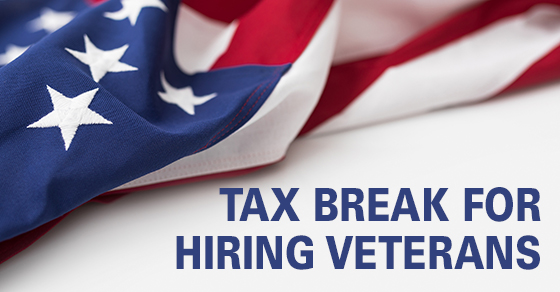
Mar 1, 2023 | Certifications, Education & Training, For Employers, For Spouses, News - LBC, News & Updates
Take note, veteran small business owners: virtual classes featuring our instructors are coming up on the calendar, with a great set of topics for marketing, funding, hiring, bookkeeping, and general operations. These were created by our parent company, Distance Learning media and hosted by the City of Austin Small Business Division. They are virtual classes, facilitated using Zoom. Cost ranges from free to $25 for a three-hour class. All of the topics below are included in a Small Business Skills Certificate program offered by Austin. Please visit SmallBizAustin.com to learn more about that program.
Upcoming Virtual Classes:
Every class includes a follow-along workbook and a free toolkit filled with guides, templates, low-cost resources and access to extra help for starting, growing and scaling a small business.
There are topics offered for nonprofit organizations as well, so if you are a nonprofit professional, take a look at the courses offered.
We’ll post more class offerings shortly! We average at least 6 per month that are virtual and can be attended from anywhere.

Jul 2, 2019 | For Employers
Dept of Labor Toolkit: Hiring Veterans
Source: Employer Guide to Hire Veterans, U.S. Department of Labor
Veterans’ Employment & Training Service
www.veterans.gov
It is a good business decision to hire veterans as studies have shown that veterans are more productive and have higher retention rates. A quick search of the internet will show several articles from Forbes, Wall Street Journal and recognized business leaders who advocate the good business practice of hiring veterans.
Some common themes from these articles are the description of attributes and characteristics of veterans as seen by their employers:
- Proven Leadership/Leadership readiness
- Mission Focused – get the job done
- Team Players who are used to working with a diverse team
- Accelerated learning curve / quick learners / immediate contributor
- Work Ethic
- Works well under pressure
- Creative initiative
- Integrity
Some additional attributes include:
Technical Skills– military experience exposes individuals to advanced
technology and technical training
Change management – cognitive and decision making research has
demonstrated military experience is correlated to the ability to accurately evaluate
a dynamic decision environment
Loyalty – military institutions are adept at institutional socialization and as a
result there is a strong linkage. Low Turnover rate which can equate to higher
ROI for the business.
Diversity – veterans are skilled at operating across cultural and international
boundaries.
The Institute for Veterans and Military Families (IVMF) published this titled brief which draws from academic literature to suggest a robust, specific and compelling business case for hiring individuals with military background and experience. The report details the results of a
comprehensive review of academic literature from the fields of business, psychology, sociology, and organizational behavior positioned to illustrate the foundational elements around which employers can formulate a research-informed logic for recruiting and developing military
4 veterans in the civilian workforce. The business case is based on 10 research-informed propositions on the value of a veteran in a competitive business environment.
Read the brief at the following site: https://ivmf.syracuse.edu/article/the-business-case-for-hiring-a-veteranbeyond-the-cliches/
Employers must first review your organizational requirements- Set hiring goals, and make a commitment build a veteran hiring plan/program
Number of positions, job functions, competencies, certifications, educational level and skills of Veterans as well as their spouses required?
- Location(s)?
- Timeline?
- What is the business case? Why veterans?
- What is your strategy?
The leadership may want to implement a veteran hiring initiative, but it is essential that HR, talent acquisition and the hiring managers are aware of the initiative and actively support. Does the employer know how many veterans they have currently employed? The best veteran recruiters are veteran employees. Get your veteran employees involved in the initiative. Share success stories of current veterans who are employed by your company.
This online step-by-step toolkit was designed to assist and educate employers who have made the proactive decision to include
Transitioning Service Members (TSMs) Veterans in their recruitment and hiring initiatives.Whether you are looking to create a plan from scratch or retool existing efforts, we encourage you to reference this on-line guide and design an initiative that works for you.
There are links with detailed information and resources to assist you in the following recommended steps to hiring veterans:
Step 1 — Design a Strategy for Your Veterans Hiring Program
Step 2 — Create a Welcoming and Educated Workplace for Veterans
Step 3 — Actively Recruit Veterans, Wounded Warriors and Military Spouses
Step 4 — Hire Qualified Veterans / Learn how to Accommodate Wounded Warriors
Step 5 — Promote an Inclusive Workplace to Retain Your Veteran Employees
Step 6 — Keep Helpful Tools and Resources at Your Fingertips
The U.S. Department of Labor recognizes that employers can sometimes find it difficult to navigate the plethora of Veteran hiring resources available to them. So, this Toolkit was developed to simplify the process and put many valuable resources and websites at your fingertips. It serves to pinpoint helpful tools and outline some important steps to take when designing a veterans hiring initiative that works for your particular business. Recognizing that each employer is unique, this guide allows you to select from promising practices and other resources that employers are using to successfully welcome talented and skilled veterans into their companies.

Jul 2, 2019 | For Employers
Federal tax benefits may be available to employers that hire veterans under the Work Opportunity Tax Credit (WOTC). Employers can receive up to a $9,600 tax credit by hiring a veteran. Tax credits currently are available for hires in the following categories of veterans:
| WOTC Target Group |
Maximum Tax Credit |
| Disabled veterans with a service-connected disability who have been unemployed for at least 6 months |
$9,600 |
| Veterans who have been unemployed for at least 6 months |
$5,600 |
| Disabled veterans with a service-connected disability |
$4,800 |
| Veterans receiving Supplemental Nutrition Assistance Program (SNAP) benefits |
$2,400 |
| Veterans who have been unemployed for at least 4 weeks |
$2,400 |
Employers also can receive tax credits by hiring individuals from one of several non-veteran target groups. For more information, see Work Opportunity Tax Credit.
Employers hiring multiple WOTC-qualified employees can see a significant reduction in their federal income taxes. These benefits are explained and claimed on IRS Form 5884.
Another program that might benefit employers is the U.S. Department of Defense Mentor-Protégé Program, which allows certain government contractors to receive reimbursements for training or incidental costs associated with training physically-challenged veterans.
Source: Texas Workforce Commission

Jul 2, 2019 | For Employers
At present, there are nearly one million unemployed military veterans across the United States. Many of them are desperate for work — and from an employer’s perspective, the unique qualities veterans possess could make some ideal job candidates. The government has also made a point of introducing a variety of benefits and incentives for business owners willing to take a chance on out-of-work veterans.
1. Veterans are goal-oriented
Very few professions focus exclusively on goal completion — but one that does is the military. Veterans are trained in engineered environments that target nothing but mission achievement, and military personnel are taught to exercise collaboration, cooperation and personal development in order to achieve their targets.
2. Veterans are trained leaders
If you’d like to foster in-house talent and hire genuine leadership candidates, veterans are a natural fit. Experts say the average Marine is recruited at age 19 and by age 20, is typically promoted to become a non-commissioned officer and placed in high-stress leadership roles.
3. Veterans take responsibility seriously
From day one, military personnel are trained to take their jobs extremely seriously. They have it drilled into them that stupid mistakes, bad decisions or blatant oversights can get their comrades seriously hurt — or worse. You can’t unlearn that, and so veterans will usually bring that enviable level of precision into the workplace.
4. Veterans speak their minds
Although they’ve been trained to obey orders, very few veterans are “yes men”. Because of their leadership experiences and intuition skills, as employees, veterans won’t shy away from flagging mistakes or asking the boss to think twice about a big decision.
5. Veterans know how to make decisions
The military is strategically designed to create leaders — and in doing so, it forces all recruits to embrace their intuition. Veterans have been trained to absorb every single piece of information they can find before making a snap judgement, and so they can typically be relied upon to make the best choice available at any given time.
6. Veterans work well independently
If you’re after an employee who you’ll be able to trust managing crucial processes in your business, you can’t do better than a veteran. Studies indicate military personnel are more likely to take major initiative than their co-workers — which is probably why U.S. veterans are also 45 percent more likely to start their own businesses.
7. Veterans have a strong work ethic
When you’re in the military, slacking off isn’t an option. Every task you’ve been asked to do must be done for a reason, and veterans have been trained to understand that. As a result, you can expect veterans do understand the meaning of hard work.
8. Veterans can help with organization
The military thrives on structure and organization. It’s their bread and butter, and all personnel are trained from day one to embrace that organization. If your business is in need of a bit of help in terms of structure, veterans have the skills needed to steer you in the right direction.
9. Veterans receive education assistance
If you want employees who are always looking to learn new skills and enhance their personal development, veterans have got a leg up on the competition. Thanks to government-provided financial assistance, veterans are able to take advantage of accreditation opportunities and degree opportunities that could bolster your businesses talent pool.
10. Veterans know technology
Military personnel are typically trained to understand the ins and outs of complicated mechanisms and technological procedures — and as a result, they’re likely to track industrial trends and strive to keep your business up-to-date on those trends.
11. Veterans understand globalization
In this day and age, you’ll be hard-pressed to find a small business in America that isn’t touched by globalization in some shape or form — whether they’re outsourcing manufacturing, shipping to customers abroad or purchasing exotic commodities like coffee or cocoa. When you’re trying to develop a strategy that takes these international factors into consideration, it helps to have a military mind on standby. A lot of veterans will have overseas experience, language skills and intimate knowledge of global markets that make for a great business asset.
12. Veterans understand health & safety
If you’re operating in an industry that must adhere to strict health and safety standards, hiring a veteran will save you a lot of time and energy in training. Veterans are trained to take health and safety protocols extremely seriously, and have a proven track record performing in a drug-free workforce guided by personal health and fitness.
13. Hiring a veteran can save you money
The U.S. Government’s Special Employer Incentives (SEI) program enables employers to hire a qualified veteran trainee at an apprenticeship wage. Employers are also reimbursed for up to half each veteran’s salary to cover certain supplies and equipment, additional instruction expenses and any loss in production.
14. Hiring a veteran means tax incentives
If you hire an eligible unemployed veteran, your business can take advantage of a number of tax incentives. The Work Opportunity Tax Credit (WOTC), Returning Heroes Tax Credit and Wounded Warriors Tax Credit can provide your company with annual incentives of up to $9,600.
15. Veterans do not give up
Worried about team morale? Hire a veteran. Military personnel are trained to be relentless in achieving their goals, and they can help your team show more initiative in order to overcome monumental hurdles.
View Original Article written by Nash Riggins.
Source: smallbiztrends.com




